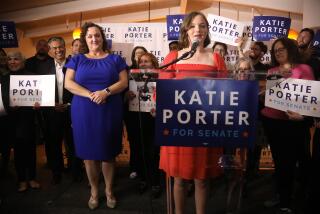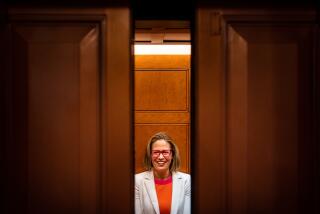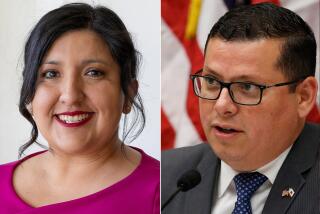Arizona Senate race likely to be a tale of two pivots
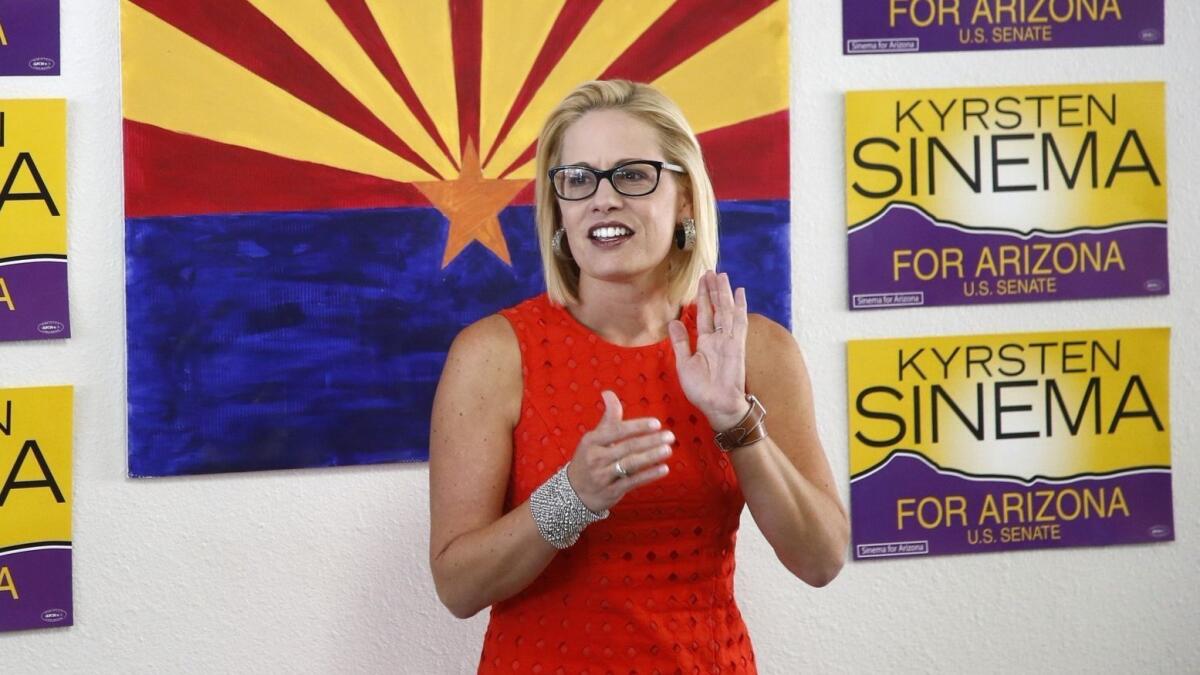
Rep. Kyrsten Sinema was once a member of the liberal Green Party and a self-described “Prada socialist,” but now she’s one of the congressional Democrats most likely to vote with President Donald Trump and a champion of moderate compromise. Though she had token opposition from the left in Tuesday’s Arizona primary for the party’s nomination for U.S. Senate, Democrats are largely united behind her.
Rep. Martha McSally represents a moderate Arizona district and was a Trump critic in 2016, but she has since warmly embraced him and won her party’s Senate nomination. She defeated two challengers from her right in the Republican primary Tuesday, but may emerge with less than half of GOP primary voters supporting her after being slammed as a flip-flopper by opponents.
The Senate race in Arizona is shaping up to be a tale of two pivots - Sinema’s transformation over the years against McSally’s more abrupt swing on Trump, the most divisive issue in politics today. The different ways the two congresswomen’s maneuverings have been received by their parties illustrate how Republicans and Democrats police their own politicians, especially in Arizona, where the GOP has won every statewide election since 2006.
“The Democrats who are unhappy with who she is are willing to put up with that just to win a Senate seat,” said Constantine Querard, a GOP strategist renowned for helping conservative Arizona Republicans win primaries. “Republicans are used to winning, so now we want a good one.”
McSally and Sinema will face off for the Senate seat being vacated by Republican Jeff Flake, who’s stepping down after his criticisms of Trump made his re-election impossible. And their race begins in the shadow of the death of John McCain, the state’s senior senator whose refusal to follow GOP orthodoxy helped fuel the Republican base’s demands for purity.
Not only have potential voters responded differently to their shifts, Sinema and McSally describe them differently as well.
Sinema, who once served in the Arizona Legislature, acknowledges her shift, casting it as part of a decadelong learning process. “What I learned early on, my very first term in the Statehouse is when I was willing to listen to other people, to their ideas and work together, you can get a lot of stuff done,” she told reporters at a food bank in Phoenix last week.
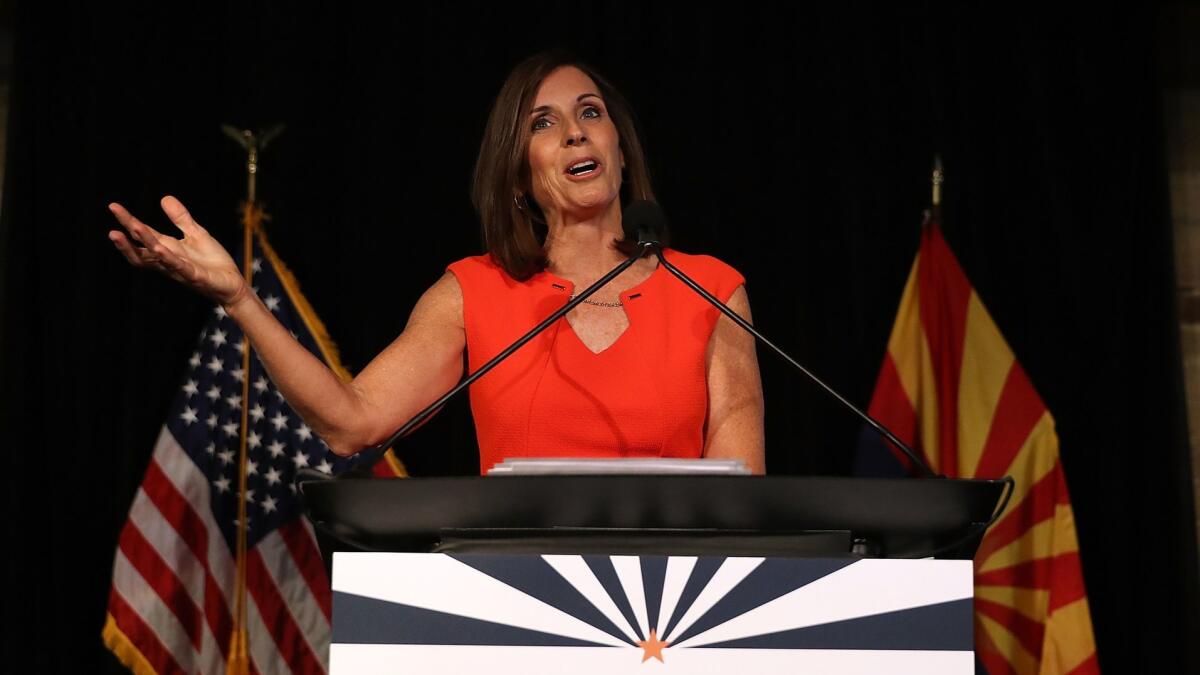
McSally bristles at any suggestion that she’s changed, noting she only entered politics six years ago — before that she was an Air Force colonel who had served as the first female combat pilot. “It’s a false narrative,” McSally said of the idea she’s tacked rightward. During a campaign trip to the border last week, McSally noted that she met with Trump in March of 2017, before the Senate seat opened up. “I have been working very closely with him since he’s been in office.”
Nonetheless, McSally was relentlessly characterized by the other Republicans in the primary — former Maricopa County Sheriff Joe Arpaio and former state Sen Kelli Ward — as disloyal to Trump. They noted that McSally said Trump’s behavior was “not how leaders carry themselves” and called Trump “disgusting” after a tape of him bragging about groping women surfaced in October of 2016.
“She’s the biggest flip-flopper in history,” Arpaio said of McSally in a recent interview.
Eric Beach, a Ward adviser, said in an interview last week that even if McSally wins she’ll still be wounded — especially given conservatives’ anger at Flake and McCain for bucking Trump.
More to Read
Get the L.A. Times Politics newsletter
Deeply reported insights into legislation, politics and policy from Sacramento, Washington and beyond. In your inbox three times per week.
You may occasionally receive promotional content from the Los Angeles Times.
